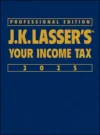IRS Employee Penalized for Unauthorized Access of Taxpayer Information
Your personal tax information is supposed to be private. Both the law (the Taxpayer Browsing Protection Act of 1997 and the Computer Fraud and Abuse Act) and IRS policy state that employees are allowed access to taxpayer paper and electronic records only when needed for tax administration. However, unauthorized access or browsing (referred to as “UNAX”) is not uncommon; there were over 500 cases last year.
Recently, John Snyder, an IRS employee in Covington, Kentucky, pleaded guilty to viewing the personal information of more than 200 celebrities without authorization. The celebrities included Kevin Bacon, Alec Baldwin, Chevy Chase, Marvin Lewis (Cincinnati Bengals coach), Penny Marshall, and Vanna White; he also accessed the records of his neighbor. He was sentenced to three years probation, a $1,000 fine, and 60 hours of community service. He could have received a year in jail.
The IRS caught him during a routine analysis by the Treasury Inspector General for Tax Administration using a computer-based detection program.
Source: WebCPA; See http://blog.wired.com/27bstroke6/2008/05/five-irs-employ.html; Code Sec. 7213A
Active participation
Test for determining deductibility of IRA deductions. Active participants in employer retirement plans are subject to IRA deduction phase-out rules if adjusted gross income exceeds certain threshold.



